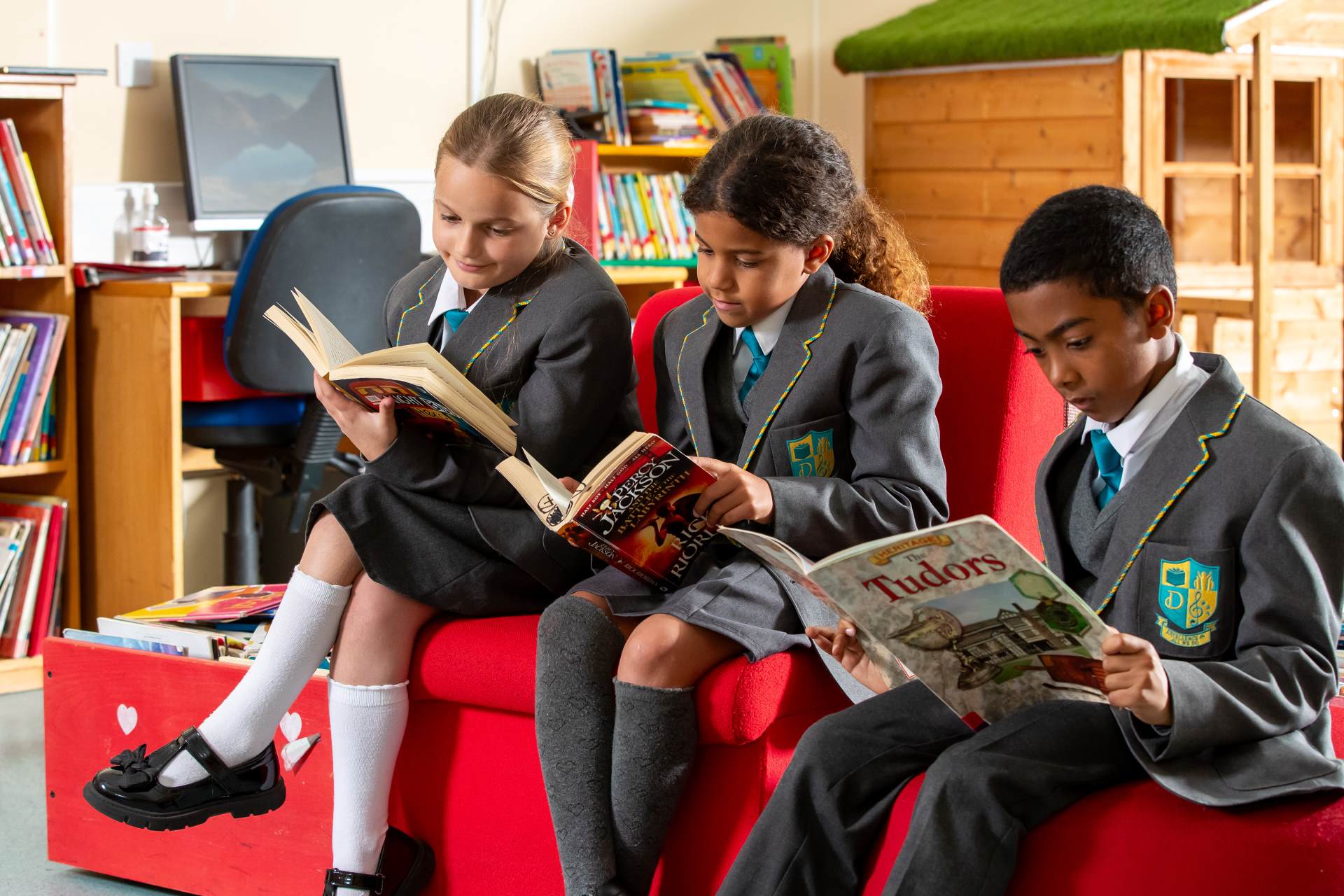English
We believe that reading is the foundation of all learning, opening doors to knowledge, creativity, and critical thinking. Our goal is to support and challenge every pupil, ensuring they develop the skills they need to thrive in the wider world.
Through our approach, we empower children to become responsible, respectful, and independent citizens, guided by our motto:
- Every child a thinker
- Every child a reader
- Every child a writer
By nurturing a love for reading, we equip children with the tools to question, explore, and express themselves, laying the foundation for lifelong success.
What is the rationale behind the English curriculum?
We follow the Power of Reading approach which underpins the teaching of English with quality literature and offers opportunities for writing across all subjects.
This tried and tested approach provides ideas, inspiration and structure for our literacy curriculum, raises literacy standards and develops a love of reading and writing across all key stages.
|
Early Years Foundation Stage |
up to Year 2 |
Years 3-6 |
|
Sounds Write decodable books |
Sounds Write decodable books |
Sounds Write catch-up (if appropriate) Spelling, Punctuation and Grammar activities |
|
Whole class reading |
Whole class reading |
|
|
Power of Reading texts for writing |
Power of Reading texts for writing using the PAT approach. |
READING: Statement of Intent
Central to learning is creating a life-long love of reading and books; it is our belief that every child should be able to read for pleasure and to a high standard.
We want to develop our children’s imagination to open up a treasure house of wonder and joy for curious young minds. We want all children to recognise the importance of reading as a life skill and understand how it will impact aspects of their adult lives. We also believe that every child should be given the tools to develop into an enthusiastic and confident reader at home, in addition to school.
A child's reading skills are important to their success in school as they will allow them to access the whole of the curriculum and improve their communication and language skills. Through reading, children have the opportunity to develop culturally, socially and emotionally as well as reaping the benefits academically.
A love of language and vocabulary is developed and fostered for the enjoyment, challenge and understanding of text. This is developed through daily exploration of new vocabulary, poetry, a variety of fictional genres, non-fiction, test questions and even through research.
Reading improves language and vocabulary, inspires imagination and gives everyone the opportunity to develop and foster new interests.








